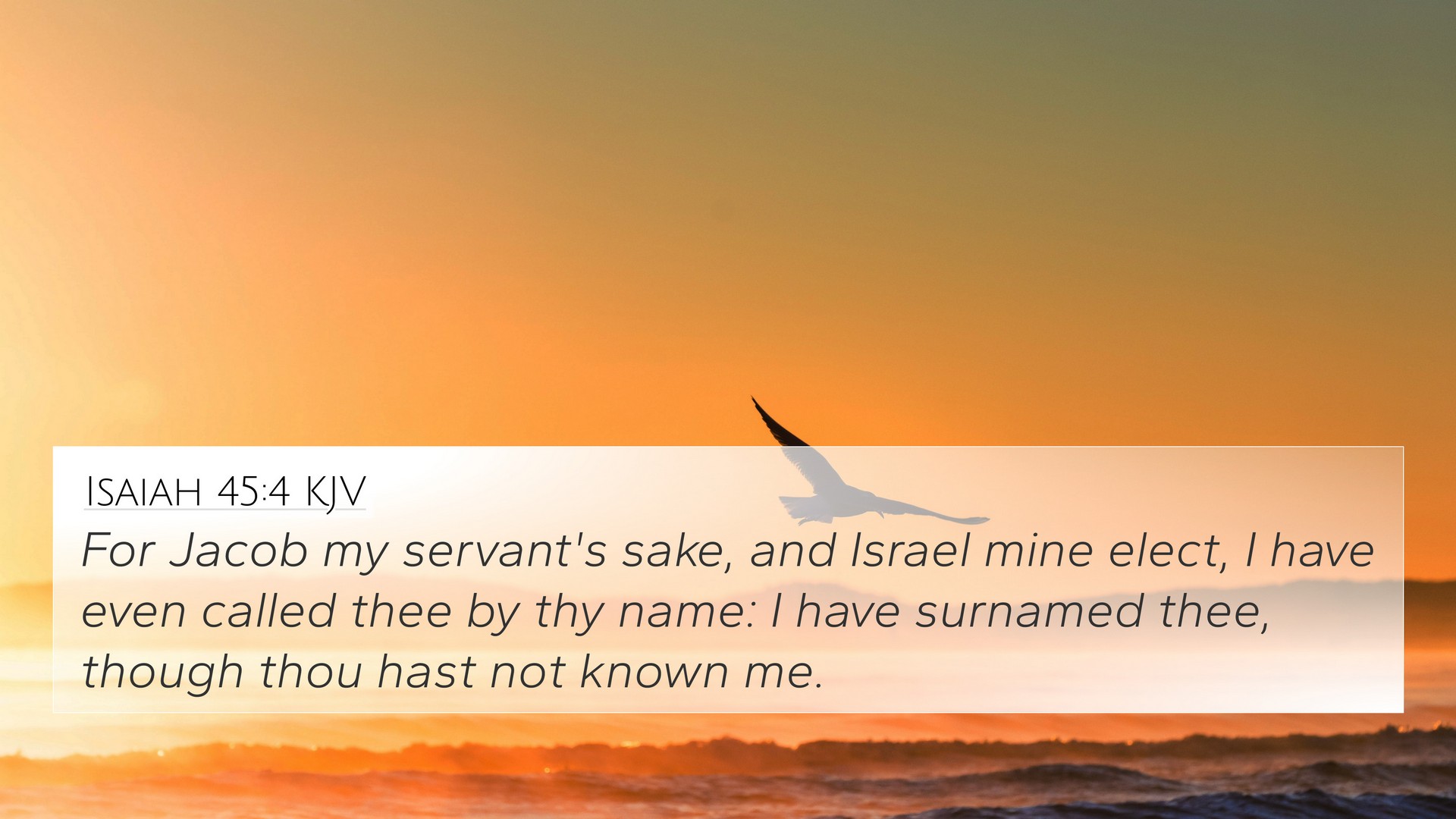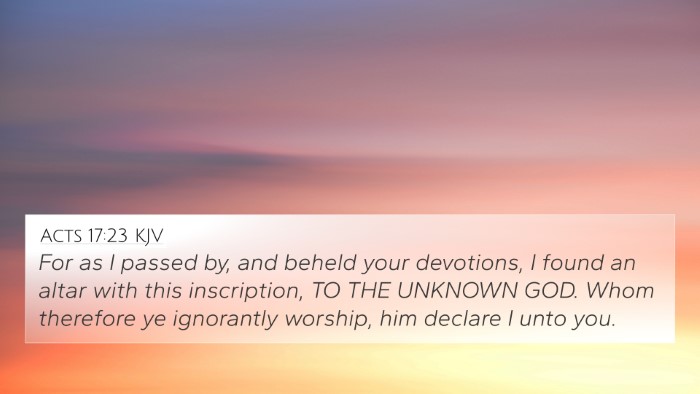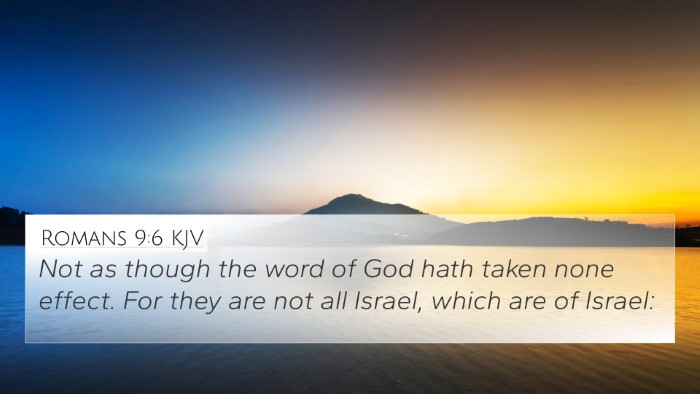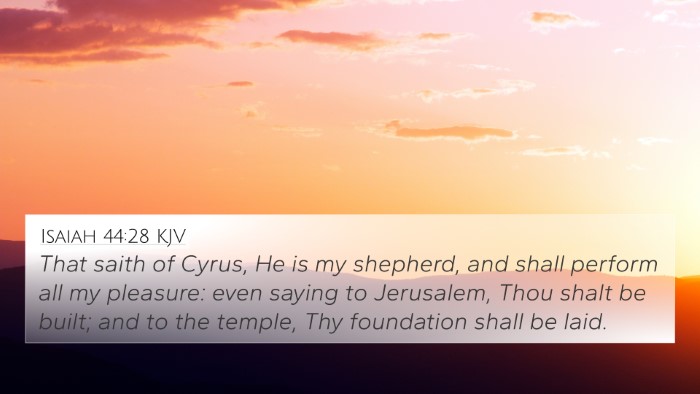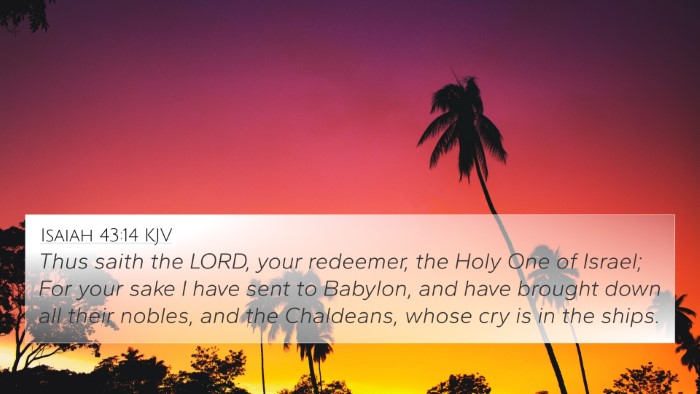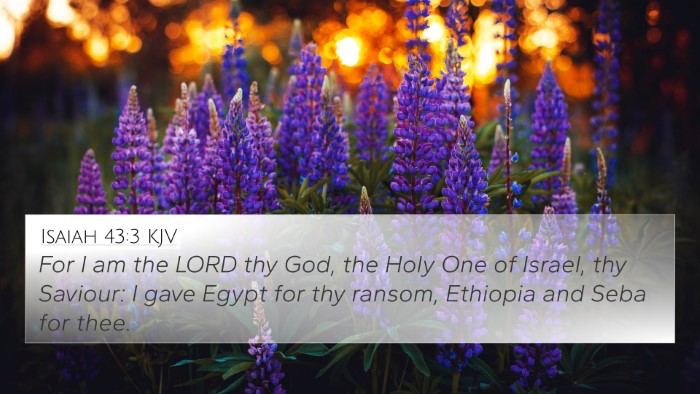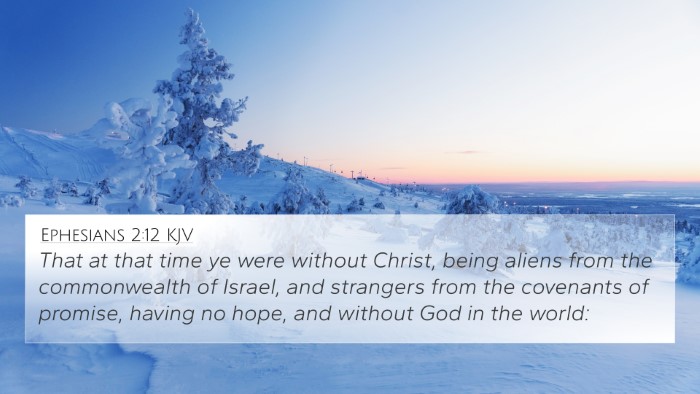Understanding Isaiah 45:4
Contextual Overview: Isaiah 45:4 states: "For Jacob my servant's sake, and Israel mine elect, I have even called thee by thy name: I have surnamed thee, though thou hast not known me." This verse is rich with theological implications, reflecting God's sovereignty and His choice of Israel as His chosen people. In this verse, the Prophet Isaiah conveys a message of divine calling and purpose.
Summary of Meaning
This verse emphasizes the concept of God's calling and selection. Matthew Henry suggests that the mention of "Jacob" and "Israel" highlights God's covenant relationship with His people and His unchanging promise despite their unfaithfulness. Albert Barnes notes that God's calling is based on His grace and purpose, not on the merit of the individuals. Adam Clarke adds that this is a reassurance to the exiles of Israel regarding God's unwavering support and presence, even when they have strayed from Him.
Theological Insights
- Divine Sovereignty: The verse demonstrates that God sovereignly calls and names His people, reflecting His authority over history and individual lives.
- Elect People: It speaks to the idea of election, where God has chosen Israel not for their righteousness but for His purpose and glory.
- Conditional Knowledge: The phrase "though thou hast not known me" suggests humanity's often unreciprocated awareness of God, while he remains faithful to His promises.
Cross-References
Isaiah 45:4 connects to several other Bible verses that enhance its message. Here are some key references:
- Genesis 32:28: This verse reflects Jacob's transformation and God's naming authority.
- Exodus 6:7: God's declaration of being the God of Israel emphasizes His covenantal relationship.
- Deuteronomy 7:6: It reiterates Israel's status as a chosen people.
- Romans 9:11-13: Paul's exposition on God's choice parallels the message in Isaiah regarding His elect.
- Matthew 1:2-3: The lineage of Jesus includes Jacob, indicating God's continuous plan through Israel.
- Isaiah 41:8-9: Affirms the special position of Israel in God's plans.
- 1 Peter 2:9: Identifies believers as a royal priesthood, drawing parallels to Isaiah's reference to God's chosen people.
Thematic Connections
The verse also opens discussions around various themes that permeate the text of the Bible:
- Covenant: God's establishment of a covenant with His people is a recurring theme throughout Scriptures.
- Grace: The verse highlights grace extended to Jacob/Israel, which can be compared to God's grace towards humanity as a whole.
- Identity: God's act of naming can be linked to the importance of identity that runs throughout the Bible, particularly in relation to believers' identities in Christ.
How to Use Cross-References
Tools for Bible Cross-Referencing: When studying verses like Isaiah 45:4, utilizing tools such as a Bible concordance or cross-reference guide can significantly enhance understanding. By cross-referencing Isaiah 45:4 with other cited verses, one can gain a more comprehensive grasp of biblical themes concerning God's elect, His calling, and the outreach of His grace.
Identifying Connections: Engaging in cross-reference Bible study methods can illuminate the rich inter-Biblical dialogue, revealing how the Old and New Testaments interact and reinforce each other.
Conclusion
Isaiah 45:4 serves as a profound reminder of God's sovereign calling and His intention behind choosing Jacob as His servant. Through comparative Bible verse analysis, we can glean significant insights into modern-day implications of being chosen by God, as well as foster a deeper appreciation for the holistic narrative the Bible offers through its interconnected verses. As you reflect on this verse, consider the many layers identified through thematic Bible verse connections, allowing for a richer understanding of God’s unfailing love and purpose.
